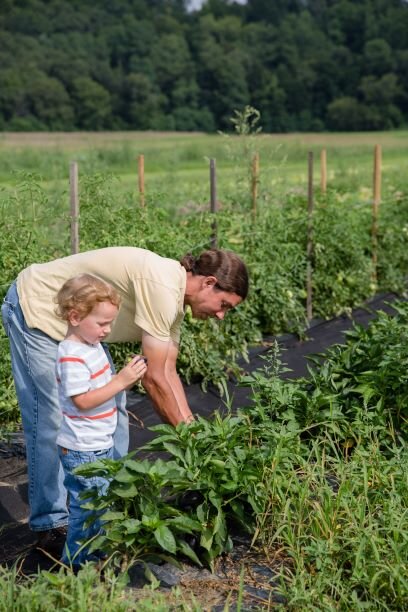The Vermont Food Hub Collaborative L3C, dba Vermont Way Foods™ (VWF) has hired Matt Landi as Director of Brand and Business Development. Landi will launch the VWF brand and build demand through strategic market development. Landi will pursue opportunities to drive market growth that supports the brand’s mission of growing and distributing food the Vermont way in order to create a more sustainable and equitable food system for all Vermont farmers and food makers.
Landi brings with him more than 20 years of management experience in the food sector, a time spent wholly focused on working with purpose and mission-driven companies, and with a drive for supporting equitable and natural resource-conscious supply chains. Committed to the organic and natural foods trade, Landi has worked for a number of organic produce distributors and retailers alike, providing valuable strategic leadership and influence. Landi also has roots in Vermont, holding a B.A. in Political Science/Environmental Studies from the University of Vermont.
Prior to joining VWF, Landi’s time on the west coast included, most recently, as Vice President and General Manager of Awe Sum Organics in Santa Cruz, CA, and Director of Sales at Organically Grown Company in Portland, OR. Early in his career he also held a role locally with Onion River Cooperative in Burlington, VT. Other leadership endeavors that Landi focuses on are serving as chair of the Board of Directors for the Organic Materials Review Institute in Eugene, Oregon, and Co-Chair of the Sustainable Food Trade Action Council of the Organic Trade Association (OTA).
Landi said “I feel incredibly fortunate to have had the opportunity to serve the food and agriculture sector over the last two decades from such a diversity of vantage points, from highly localized organic supply chains to organic trade on a global scale. I’m incredibly honored to be able to come back home to New England, which is where it all started for me, to go to work for farmers and producers across Vermont, joining forces with so many great folks that are already engaged in this work and have really led the way. The Vermont Way Foods™ tagline of “Food with a Compass” is one that speaks volumes to me and I hope translates well to eaters across the region!”
Get in touch with Matt Landi at (831) 818-0179 or matt@vermontwayfoods.com
The Vermont Food Hub Collaborative (VFHC) L3C was founded by a group of four VT-based nonprofit farm and food organizations (Intervale Center, Food Connects, The Center for an Agricultural Economy, and Green Mountain Farm-to-School) with the goal of operating a transactional network for effective and efficient food aggregation, logistics, and distribution. The VFHC has developed the Vermont Way Foods™ brand to create new market opportunities for Vermont producers in support of a robust and vibrant farm and food economy. Learn more at https://www.vermontwayfoods.com/.



